
DURING A VISIT TO the vast basement storerooms of Cairo's Egyptian Museum, while searching for ancient objects, such as jars and coffins, that had never been opened, Cairo University radiologist Sahar Saleem found a plain wooden coffin with an arched lid. The museum's records contained scant information about the coffin, which held one of the thousands of mummies excavated in the nineteenth and early twentieth centuries that have never been displayed or studied. The only detail Saleem was able to discover in the archives was that the coffin had been excavated in 1916 at Nag el-Hassaya, a cemetery seven miles south of the ancient city of Edfu in southern Egypt. This necropolis was the burial site for the city's residents during the Ptolemaic period (304-30 B.C.), when a dynasty of Macedonian royals named for their first pharaoh, Ptolemy I (reigned 304-284 B.C.), ruled Egypt. No further information about the coffin's original context is known, and there are no records of other objects having been found alongside it, or even in the same section of the cemetery. "When we removed the lid of the coffin, it was probably the first time it had been opened in 2.300 years." Saleem says. "Inside was a beautiful gilded wood inner coffin. After we removed that, a wrapped mummy with a golden mask appeared."
This story is from the {{IssueName}} edition of {{MagazineName}}.
Start your 7-day Magzter GOLD free trial to access thousands of curated premium stories, and 9,000+ magazines and newspapers.
Already a subscriber ? Sign In
This story is from the {{IssueName}} edition of {{MagazineName}}.
Start your 7-day Magzter GOLD free trial to access thousands of curated premium stories, and 9,000+ magazines and newspapers.
Already a subscriber? Sign In
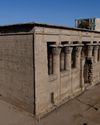
AN EGYPTIAN TEMPLE REBORN
By removing centuries of soot, researchers have uncovered the stunning decoration of a sanctuary dedicated to the heavens

THE SHELL SEEKERS
How hunter-gatherers in northern Florida facing an uncertain future revived a powerful symbol of their past
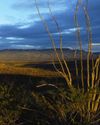
The Secrets of Porvenir
Remembering the victims of a 1918 massacre that shook a Texas border community
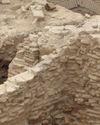
UNEARTHING ANELUSIVE EMPIRE
Archaeologists have discovered rare evidence of an enlightened medieval dynasty that ruled much of Central Asia
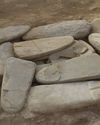
Ahead of Their Time
Excavations reveal the surprising sophistication of Copper Age villagers in southwestern Iran 6,000 years ago
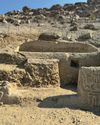
ORIGINS OF PERUVIAN RELIGION
While investigating looters' holes at the site of La Otra Banda in northern Peru's Zaña Valley, archaeologist Luis A. Muro Ynoñán of the Field Museum and the Pontifical Catholic University of Peru spotted carved blocks around seven feet below the surface.
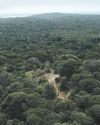
ISLAND OF FREEDOM
Many of the enslaved Africans sent to Brazil beginning in 1549 were from what is now Angola, where one of the most widely spoken languages was Kimbundu.
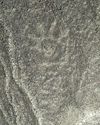
NAZCA GHOST GLYPHS
From the 1940s to the early 2000s, geoglyphs were discovered in the Nazca Desert of southern Peru depicting animals, humans, and other figures at the rate of 1.5 per year.
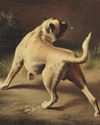
COLONIAL COMPANIONS
The ancestry of dogs in seventeenth-century Jamestown offers a window into social dynamics between Indigenous people and early colonists.
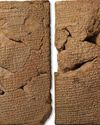
BAD MOON RISING
The British Museum houses around 130,000 clay tablets from ancient Mesopotamia written in cuneiform script between 3200 B.C. and the first century A.D.